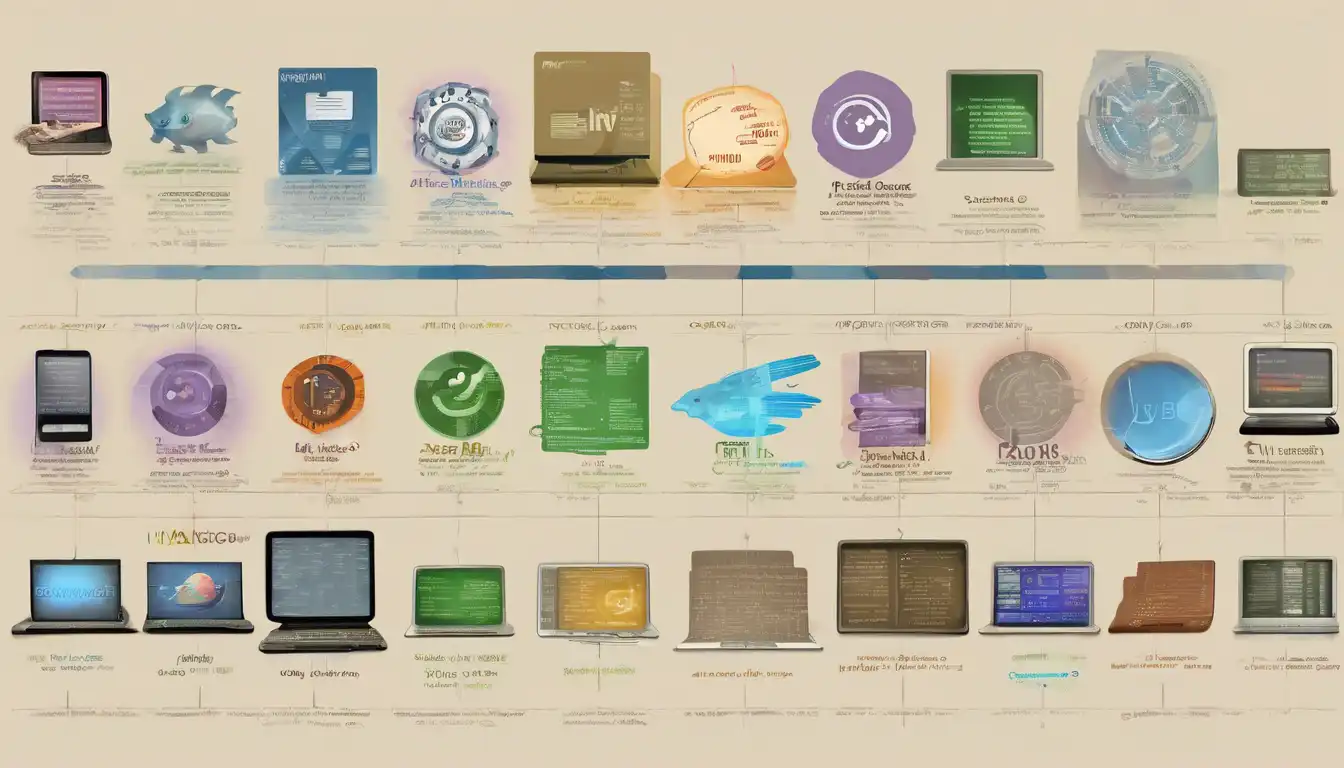The Dawn of Programming Languages
The story of programming languages begins in the early 19th century, with the invention of the first mechanical computers. However, it wasn't until the mid-20th century that the first high-level programming languages were developed, marking a significant milestone in the evolution of computing.
From Assembly to High-Level Languages
The transition from assembly language, which required programmers to write instructions in binary or hexadecimal code, to high-level languages like FORTRAN and COBOL, revolutionized the way software was developed. These languages introduced the concept of abstraction, allowing developers to focus on solving problems rather than on the intricacies of machine code.
The Rise of Structured Programming
By the 1970s, the limitations of early programming languages became apparent, leading to the development of structured programming languages such as C. This era emphasized the importance of clear, logical structure in code, making programs easier to understand, maintain, and debug.
Object-Oriented Programming Takes Center Stage
The 1980s and 1990s saw the rise of object-oriented programming (OOP) languages like C++ and Java. OOP introduced concepts such as classes and objects, enabling developers to create more modular and reusable code. This period also marked the beginning of the internet age, with languages like JavaScript becoming essential for web development.
The Modern Era of Programming Languages
Today, the landscape of programming languages is more diverse than ever. Languages like Python and Ruby prioritize developer productivity and readability, while newer languages like Go and Rust focus on performance and safety. The evolution of programming languages continues to be driven by the needs of modern software development, including cloud computing, mobile applications, and artificial intelligence.
Looking to the Future
As technology advances, so too will programming languages. Emerging trends such as quantum computing and blockchain technology are likely to inspire the development of new languages designed to meet the unique challenges they present. The evolution of programming languages is a testament to the ingenuity and creativity of the software development community.
For those interested in diving deeper into the history of programming languages, exploring the impact of open source on software development provides valuable insights into how collaborative efforts have shaped the tools we use today.
